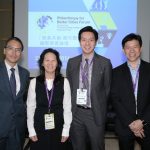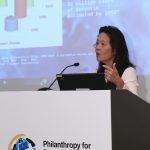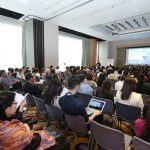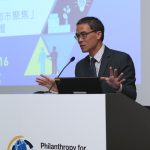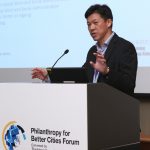Speakers:
- Rhoda Au Director of Neuropsychology for the Framingham Heart Study, Alzheimer’s Disease Center
- Laurence Lien CEO, Asia Philanthropy Circle
- Terry Lum Head and Professor, Department of Social Work and Social Administration, The University of Hong Kong
Facilitator:
- Jonathan Chang Executive Director, Lien Centre for Social Innovation
Globally, one out of eight people will be over the 65-year age threshold by 2030. Hong Kong itself is estimated to see its elderly population double in the next 20 years. The confluence of urbanization and ageing populations especially in Asia has huge implications on how cities and their responsiveness to future needs of their populations.
Professor Lum commented that historically, cities have been built with economic development in mind. Public transportations are means to move people from their homes to workplaces. With a fast ageing society, this “bulldozer development” approach alienates the elderly whose sense of social identity and community inclusion are anchored in the familiarity of their community. Changing our collective mindsets to embrace this new normal of an ageing population in cities is imperative.
At the same time, health issues will be at the forefront in an ageing society. Among the themes discussed included: 1) challenges in walkability in cities which are currently designed to enable economic activities; 2) treating ageing itself as an issue to be solved rather than asking elderly what they want or what provides them with meaning; 3) cultural taboos such as the quality of end of life; and 4) mental health issues among the elderly as their social, physical, and emotional needs take a back-seat.
The role of philanthropy catalyzes conversation starters on some of the mindset challenges identified. These include: 1) identifying and funding adjacent issues around ageing that government and businesses are not as comfortable or incentivized to address; 2) bringing back “home into nursing home” rather than sanitized medical facilities that the elderly and frail do not want.
The panelists also cited the need for a collective and cross-sectoral efforts to holistically tackle challenges relating to an ageing society. They lamented that it is easier to identify issues around ageing but extremely difficult to implement solutions as each sector has their mindset limitations which in turn limits what they think they can do.
